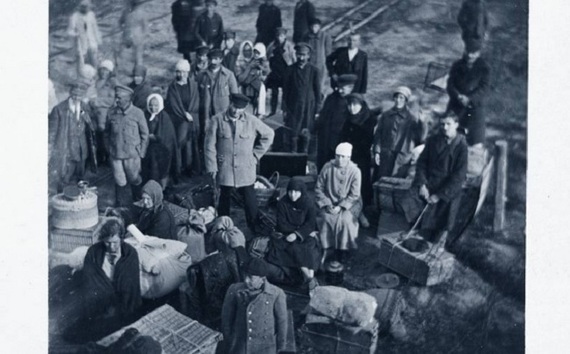During mad dashes toward the future, inevitably, pockets of a nearly forgotten past emerge to make themselves known, lest they completely fade into obscurity. For decades, Joseph Stalin's mass deportation of Polish citizens during the 1940s remained one of the more under-reported events of the 20th century. But over the past five years, through the persistence of historians, authors (myself among them), documentary filmmakers and other scholars and activists, news of what happened to hundreds of thousands of Polish people in the wake of the signing of the Molotov-Ribbentrop Pact in August 1939, is finally seeing the light of day.
This week, three Law and Justice (PiS) politicians in Poland signed a letter to Culture Minister Piotr Gliński, strongly suggesting the government support the construction of a new museum commemorating Poles who were transported to Siberia in the early 1940s. Those Poles endured a brutal fate in the Gulags. And beyond, in fact. After an "amnesty" was signed in the summer of 1941, Polish citizens who survived the ordeal were set free but left to wander as refugees, mostly across southern Russia.
The destination of the proposed museum would be located in Białystok, in northeastern Poland. The pricetag? Approximately 50 million PLN (or 12 million EUR).
According to Radio Poland, the city of Białystok hopes the government would fund roughly half of the proposed project. Interestingly, Białystok's current mayor, Tadeusz Truskolaski, is an independent, however received support by the Civic Platform (PO) party--he defeated the PiS candidate in the most recent city elections.
In a statement, MP and former Voivodeship marshal Dariusz Piontkowski noted: "Regardless of the political differences which separate us, we [the signatories] have decided that it is worthwhile to support this initiative."
Deputy Internal Minister, Jarosław Zieliński, was also a signatory. Zieliński was quick to point out that Białystok would be a natural option for the museum because the region is already home to the Polish Siberian March of Living Memory.
"It is tragic that for over 200 years our history has, to a large degree, been linked to Siberia," Zieliński reportedly said. He went on to note that the three signatories are slated to meet with Minister Gliński to address the matter.
Meanwhile, it's interesting to note the genesis of the the proposed museum. It originally sprang from ideas that emerged from individuals involved in the Army Museum in Białystok. In its fullest embodiment, the proposed museum would cover the 1940-1941 period during which it is estimated that nearly a million Poles were deported to the east by the Soviet officials--some older reports originally listed the number of Polish people deported to be well over one million, however an adjustment to those figures was made over the last decade, particularly by scholars deeply entrenched in researching the issue.
Radio Poland also reported that the museum would include something unique: An exhibition depicting earlier deportations of Polish people--the Russians first deported Poles to Siberia in the 18th century and large scale deportations began in the 19th century following a number of Polish uprisings.
Meanwhile, as these remarkably dark chapters of Polish history come to light, so, too, does something that stirs beneath the surface: The ripple effects of war.
Several words and phrases have been making their way into today's discussions about the Polish deportations. One of them is epigenetics. Another phrase: "unresolved trauma of World War II survivors." I wrote it about both of those issues in my recent book, "Grace Revealed," and blogged about it recently here. However, more than a decade ago, "Psychiatric Times" reported on the issue. And Yael Danieli wrote about this vividly in the "International Handbook of Multigenerational Legacies of Trauma."
In an era where refugee crises and war continue to loom over the masses, honoring the injustices of the past has become downright vital. However, moving ahead, one has to wonder what can also be done to deal with the psychological and emotional ripple effects of war, not just for those who went through it, but for their offspring as well.
Photo: sybir.com.pl

